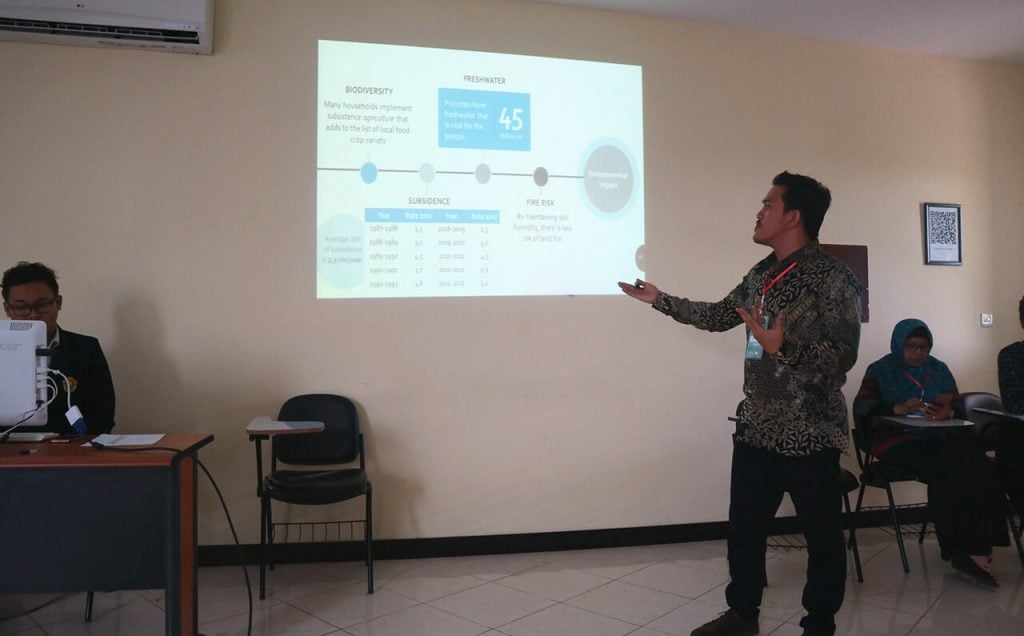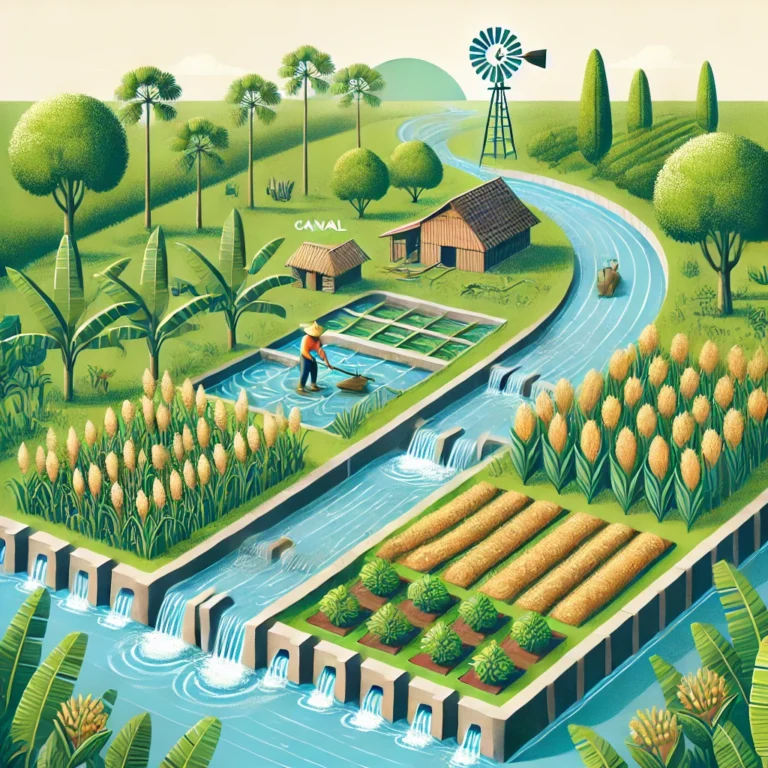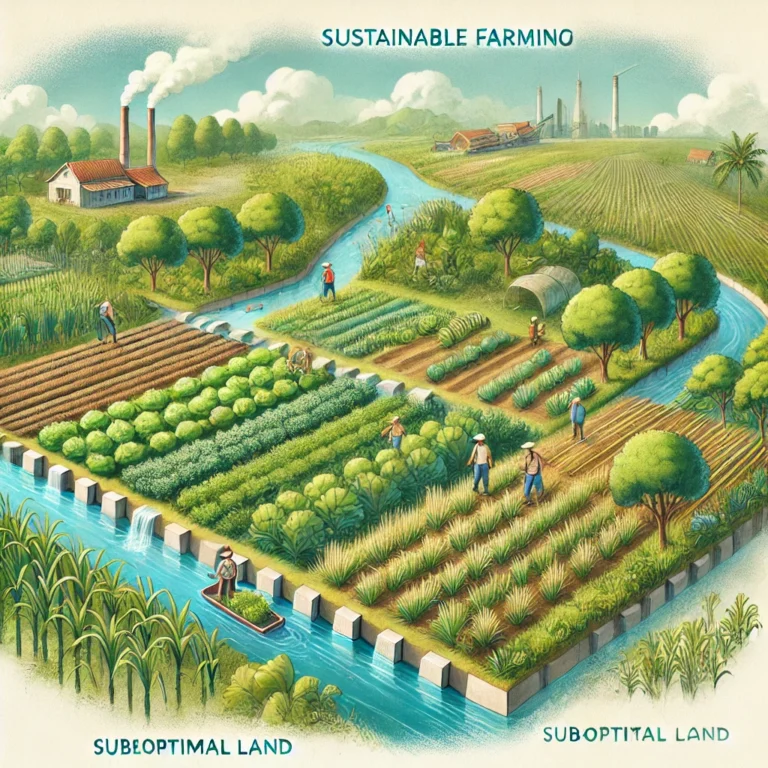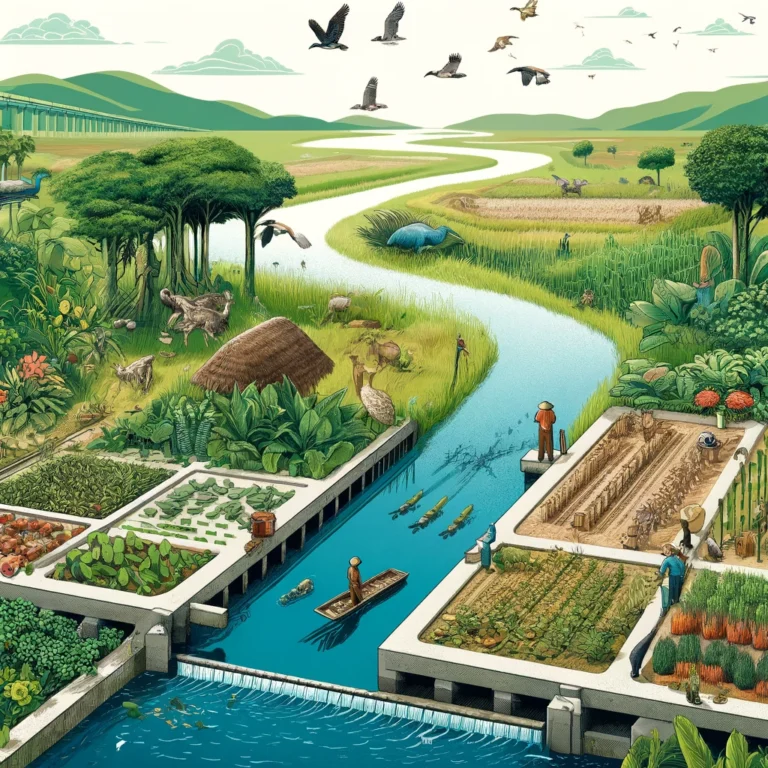Promoting a theme ‘Sustainability of Industrial Agriculture and Food Sovereignty in the Era of Industrial Revolution 4.0’, the 3rd International Conference on Agricultural and Life Sciences (ICALS) was held last month in University of Jember. It was organized as a collaboration of the International Seminar and Workshop on Plant Industry (ISWPI) and the International Seminar on Food Sovereignty and Sustainable Agriculture (FoSSA). Three delegates from Tay Juhana Foundation (TJF) participated in the event to attend the international seminar and present our research to the fellow researchers.
Until earlier this year, TJF activities have been revolving around conducting research both from literature review and field observation. It is already on our agenda to find a platform to disseminate the research focus and even better to produce scientific publications. Selected papers from this conference will be accommodated to be published in indexed journals such as E3S Web of Conferences. Otherwise, the publication will be part of University of Jember online-based proceeding. Therefore, TJF participation in ICALS was an effort made to introduce the organization and its causes to scientific communities. We submitted two abstracts and both were accepted by the committee to be presented during the event.
The first day of ICALS consisted of presentations from the keynote speakers, from the representative of National Development Planning Agency (BAPPENAS) and a number of researchers from Indonesia, South Korea, Malaysia, and Germany. In general, the conference discussed on how the industrial revolution 4.0 can be integrated into the food system, from food production using biotechnology approach, nutraceuticals application, to small and medium food enterprises.
Day two started with the international symposium with a focus on biotechnology application in agriculture commodities, especially rice. The speakers talked about rice breeding using biotechnology and molecular approach and some case studies of rice’s genetic improvement, e.g. development of iron-tolerant varieties and folate fortification on local rice variety. After the symposium, scientific sessions (i.e. oral presentations) were conducted in parallel. The participants of these sessions were divided into several classes in accord with the scopes of the conference:
- Agriculture and Food Sciences
- Biotechnology
- Agricultural Engineering and Technology
- Smart Education for Food and Agriculture
- Smart Farming and Food Business
- Smart Social and Politics for Agriculture

TJF’s submitted abstracts were under the theme of ‘agriculture and food sciences’ and ‘smart education for food and agriculture.’ One abstract was titled ‘Balancing Environmental Conservation and Socioeconomic Welfare: Sustainable Cultivation of Suboptimal Lands in Pulau Burung District of Riau Province.’ Its objective is primarily to expose the implemented sustainable agriculture practice in Pulau Burung’s ecosystem, especially with the integrated water management system. The other abstract was ‘The Comparative Study of Youth-Related Agriculture Initiatives: Optimizing the Role of Indonesian Youth in Improving Food Security.’ It delves into the existing approaches for rural and urban youth to be involved in agriculture sector. Each participant was given 10 minutes to present the research and 15 minutes Q&A session along with the other two participants.
The last day of ICALS was closed by workshop classes. The attendants were not only from the participant of the conference but also a number of practitioners, including farmers, from the surrounding regions. The first workshop focused on assessing and documenting plant variety rights while the second described the technology development of rice breeding. The materials and questions from the participant were more practical during this workshop classes compared to the two previous days.





